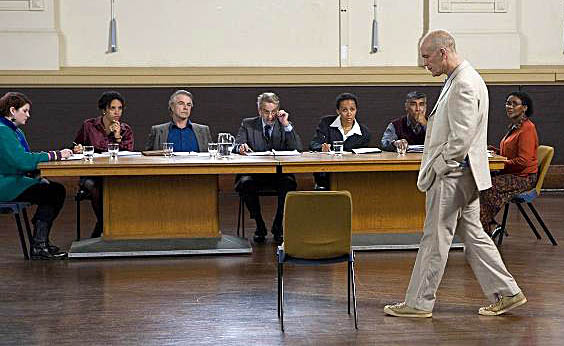Screen Scene: Disgrace

“Disgrace”
Steve Jacobs
fortissimo films
By Patrick Mallon
Sept. 24, 2009 9:47 p.m.
Profoundly disturbing yet compelling, “Disgrace” unabashedly confronts a vast array of controversies and taboos. Its intensity derives from the film’s desire to be deeply affecting. The film is successful in evoking a myriad of emotions; however, the intensity and its lack of a concentrated focus may prevent it from getting the viewership it deserves.
David Lurie (John Malkovich) is a professor at a university in post-apartheid Cape Town, South Africa. He is depicted as an idiosyncratic and morally ambiguous man who appears to view the world from a strictly rational perspective. He enters into a not entirely consensual relationship with one of his students and is subsequently forced to resign. He does not exhibit much remorse, nor does he perceive his actions to be those of a man who simply could not resist temptation.
For Lurie, desire is part and parcel of existence. In the wake of his resignation, he travels to the country to help his daughter tend to her small farm. Not long after Lurie’s arrival, a trio of native boys viciously attacks him and his daughter. The rest of the film details the consequences of the attack and its incendiary points of contention.
“Disgrace” is inarguably a provocative film. It induces thoughtful reflection and contemplation, almost subconsciously. And in that regard the film is very effective and ultimately successful. Unfortunately, its unsettling portrayals of violence, animal abuse and racial tension will likely deter many from seeing it or engaging in it. However, such illustrations are often necessary to accurately demonstrate the gravity of the circumstances. While it is not a cinematic mandate that sensitive topics must be presented graphically, they must inevitably be addressed and are largely more effective when represented realistically and visually, as opposed to a subtle allusion susceptible to being lost among the characters’ dialogue.
What the film does most successfully is it complicates race relations to such a degree by simultaneously reinforcing and avoiding stereotypes that any previously accepted prescriptions for improving race relations are discarded. “Disgrace” also presents varying responses to sexual abuse and its consequences.
The film’s lush visuals emanate pastoral serenity and stand in stark contrast to the film’s sordid situations that simmer and finally come to a boil, tainting the rustic beauty of the South African rural landscapes. The cinematography vividly portrays the Arcadian elements of the South African backdrop. The idyllic facade is marred by violence and racial tension. Due to this contrast, the violence becomes more pronounced, and consequently, more disturbing.
Much of the film’s muddled morality is derived from Malkovich’s performance. His character oscillates between a loathsome and detestable character and that of a sympathetic and almost likable one. Lurie is an arrogant man, and he likes to think of himself as principled and precise. However, when he becomes entrenched in the messy aftermath of the attack, his code of conduct and personal morals are warped and are rendered irrelevant from his new perspective.
The film suffers somewhat in attempting to put too much of J.M. Coetzee’s Nobel-Prize-winning novel, on which it is based, into the film. Although it is a relatively short novel, there is such a multitude of events and themes that the film cannot help but have a sort of uneven, sprawling feel. At times, the transitions between some of the action feel discordant to some degree. Additionally, the effort to encompass so much slightly detracts from the film’s effectiveness.
In spite of its occasionally overextended vision, the film resonates with the viewer long after it has been experienced. The meticulous direction and brilliant performances deliver a brutally absorbing film and force the viewer to grapple with acute emotional and sociopolitical conflicts.
– Patrick Mallon
E-mail Mallon at


